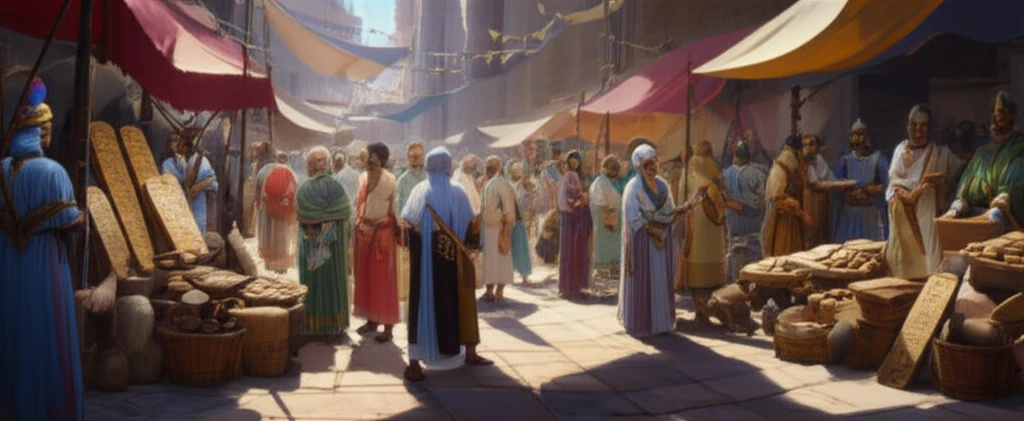
Unveiling Babylon's Secrets: The Untold Stories of Foreigners in Nebuchadnezzar's Realm
"A Journey Through Ancient Texts: Exploring the Diverse Tapestry of Cultures that Shaped Nebuchadnezzar's Babylon"
Step back in time to the reign of Nebuchadnezzar II, the most celebrated king of Babylon. While history often focuses on his grand architectural projects and military campaigns, a rich tapestry of untold stories lies beneath the surface. Hidden within ancient cuneiform texts are the accounts of the diverse communities who contributed to the city's vibrant life.
This article delves into the lives of foreigners who resided in Babylon during Nebuchadnezzar's rule. From the Levant, Egypt, Anatolia, and beyond, these individuals represented a multitude of cultures and skills. Their presence wasn't merely a footnote in history; it was an essential element that shaped the city's identity and prosperity.
Through detailed analysis of historical records, we'll explore the various roles these foreigners played, from prisoners of war and skilled artisans to diplomats and merchants. Prepare to discover the untold stories of these fascinating people and gain a deeper understanding of the complex and interconnected world of ancient Babylon.
Who Were the Foreigners in Babylon? A Breakdown of Diverse Groups

The ancient city of Babylon, far from being a monolithic society, was a melting pot of cultures. Nebuchadnezzar II's reign saw a significant influx of foreigners, each group bringing unique skills, experiences, and traditions. The royal archives provide a glimpse into the lives of these individuals, categorized primarily by their roles and origins.
- Prisoners of War: Captured during Nebuchadnezzar's military campaigns.
- Hostages: Individuals of high status, often from conquered regions, held to ensure political stability.
- Deserters: Individuals who abandoned their previous allegiances to seek refuge in Babylon.
- Diplomatic Envoys: Representatives from other states, facilitating trade, alliances, and communication.
- Immigrants: People who voluntarily moved to Babylon, seeking new opportunities.
- Mercenaries: Soldiers hired to fight for the Babylonian army.
A Legacy of Diversity: The Enduring Impact of Foreigners in Babylon
The legacy of foreigners in Nebuchadnezzar's Babylon is a testament to the enduring power of cultural exchange and the interconnectedness of the ancient world. Their contributions shaped the city's identity, influenced its artistic and intellectual achievements, and enriched its overall cultural landscape. By studying these historical records, we gain a deeper appreciation for the complex interplay of cultures that shaped ancient civilizations and continue to resonate today.
